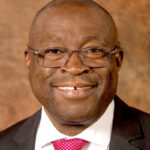South Africa’s economic growth is expected to slow to 1.9% in 2022, says Finance Minister Enoch Godongwana.
The Minister said this in the National Assembly on Wednesday while delivering the 2022 Medium Term Budget Policy Statement (MTBPS) at the Cape Town City Hall.
Addressing Members of Parliament, Godongwana said this level of growth is “too low” to support the country’s developmental goals.
“Accordingly, we must take action to put our economy on a higher growth trajectory,” he said.
The project is a significant decline from 2021’s 4.9%. The forecast, said the National Treasury, is in response to global and domestic shocks. Growth is projected to average 1.6% from 2023 to 2025.
By the same token, Treasury forecast headline inflation of 6.7% for 2022. It project that inflation would decline to 5.1% in 2023. High domestic food inflation and elevated fuel price were key sources of inflationary pressure. Food inflation this year averaged 8.5%, driven by rising bread, cereals and meat prices.
Treasury said implementing structural reforms, especially in the energy sector, remains crucial to improve the economy’s productive capacity and competitiveness.
“The recovery in economic activity that began in 2021 was driven by a strong rebound in global economic activity, high commodity prices and easing COVID-19 restrictions. The scarring impact of the pandemic on employment and investment decisions will likely weigh on the recovery over the medium term. Investment remains well below pre-pandemic levels,” it said.
In this regard, the country’s economy grew by 1.4 % in the first half of 2022 compared with the first half of 2021.
“Real gross domestic product (GDP) grew more than expected in the first quarter of 2022, with output returning to pre-pandemic levels. However, a deteriorating global environment, flooding in KwaZulu-Natal and the Eastern Cape, industrial action in the electricity and mining sectors, and protracted and intense power cuts resulted in a broad-based contraction across most sectors during the second quarter, reads the MTBPS.
“The third quarter was marked by frequent and prolonged power cuts, which significantly disrupted economic activity.”
The National Treasury in the MTBPS said the supportive external environment and commodity price levels that contributed to a faster than-expected recovery from COVID-19 lows were dissipating.
Risks
In addition, some of the risks outlined in the 2022 Budget had materialised, including slower global growth from supply chain disruptions and stringent lockdown restrictions in China, surging inflation and tighter monetary policy stances.
“South Africa’s structural economic constraints – including unreliable electricity supply, high levels of market concentration, inefficiencies in network industries and a high cost of doing business – limit the rate at which the economy can grow and create jobs.”
Treasury said these longstanding impediments to growth have been aggravated by recent shocks, threatening to move the economy further away from the goals of the National Development Plan.
“Recent events underline the importance of rapidly implementing the economic recovery plan, including through Operation Vulindlela, to narrow the gap between South Africa’s poor economic outcomes and its aspirations,” it said.
A draft National Treasury review of the country’s macroeconomic policy since the 2008 global financial crisis has underscored the importance of a clear and stable macroeconomic framework, said the department.
These, it said, include a flexible exchange rate, low and stable inflation, and sustainable fiscal policy – as a foundation for a growing economy. Building on this foundation, rapid implementation of economic reforms was required to boost economic growth.
Since the 2022 Budget Review, progress had been made on important reforms that were expected to support investment and job creation.












